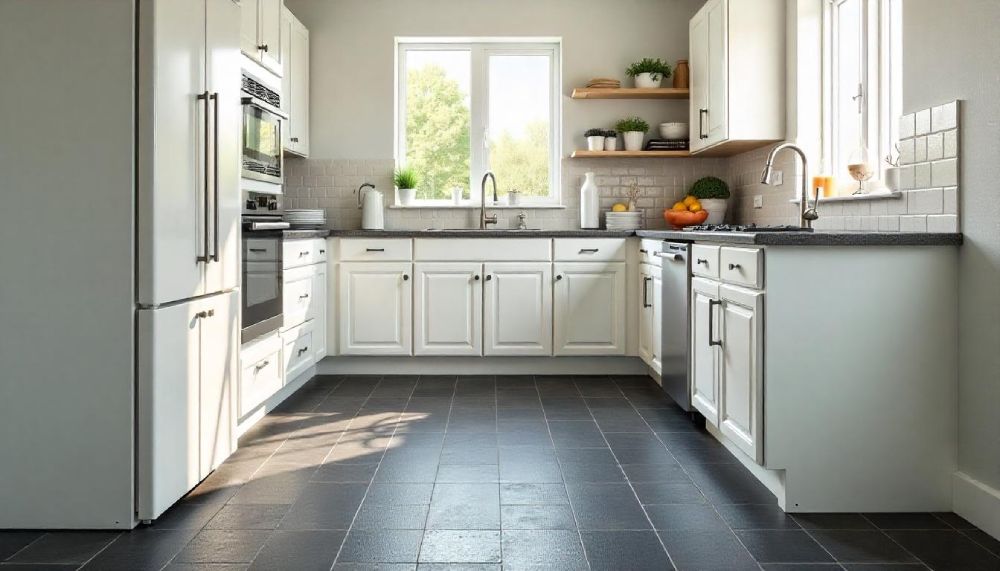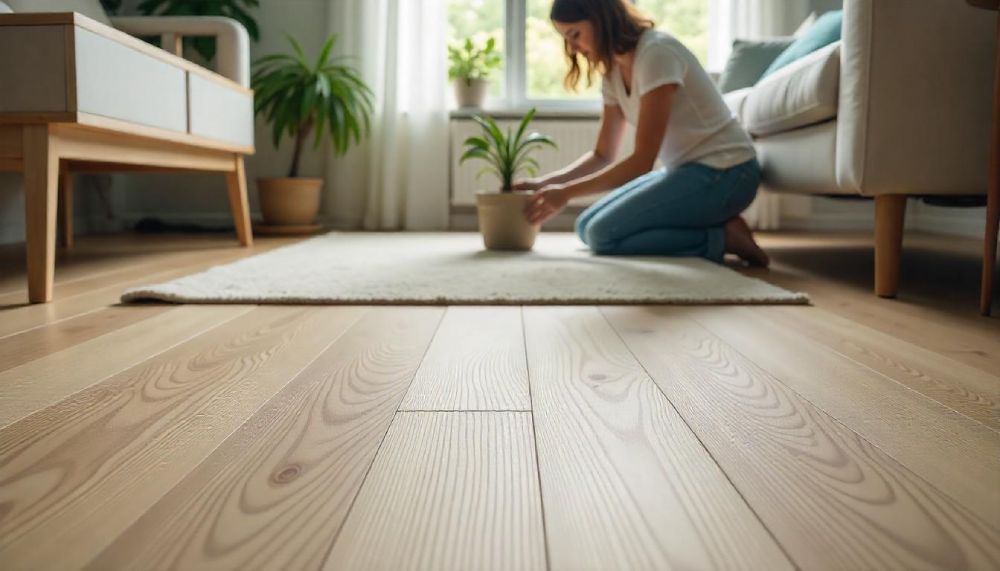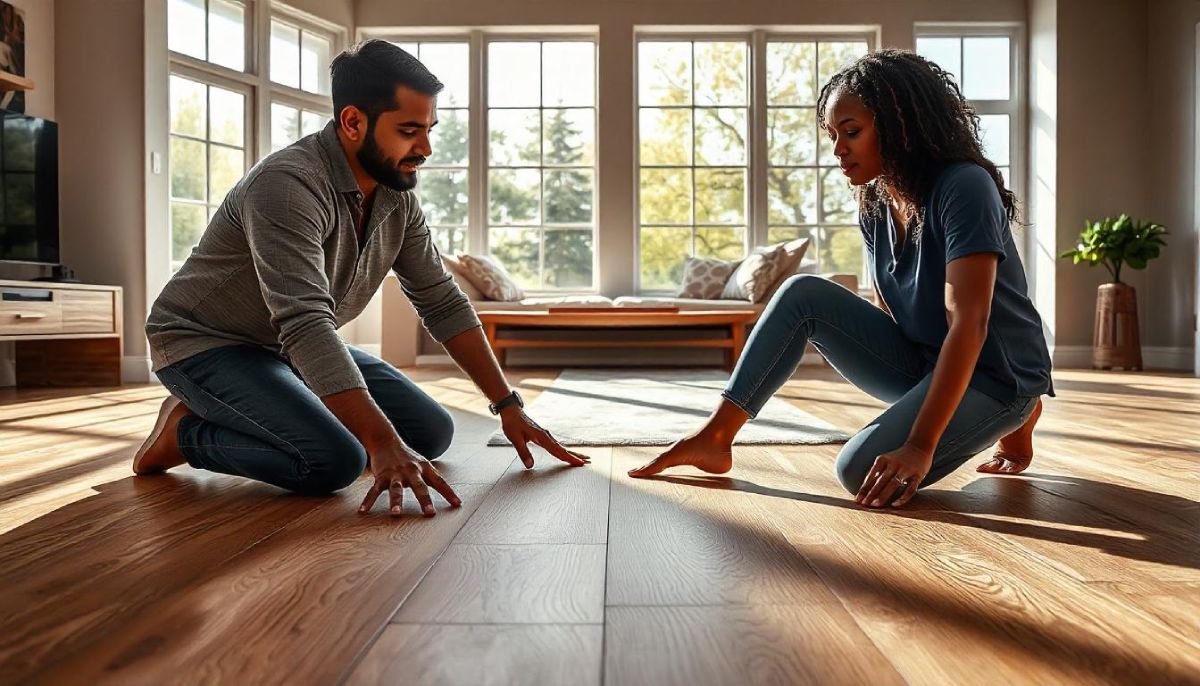When deciding about the best flooring option for your property, various flooring choices make your decision challenging to make. Vinyl and hybrid flooring are the two most common flooring options that are both popular in Australia due to their durability, stylish appearance, and water resistance. In this article, you will learn more about each of these flooring choices which helps you whether hybrid or vinyl flooring is the best flooring for your home.
What is vinyl flooring?
Vinyl flooring is made of polyvinyl chloride (PVC) and it is available in luxury vinyl planks (LVP) and tiles (LVT). Vinyl is a flexible and budget-friendly flooring option that is designed to reflect different natural materials like stone and wood. This flooring option is a resistant and durable choice for various places while offering easy maintenance.
Advantages of vinyl flooring:
- Affordable: Vinyl flooring is often more budget-friendly than hybrid flooring while delivering a high-quality, resistant, and appealing appearance for any space such as a home.
- Flexible installation: Vinyl flooring installation is easy to do and it can be installed by gluing it down or as a floating floor.
- Moisture resistance: Vinyl flooring is resistant to moisture and spills, so it can be used in places where there is a risk of liquid spills and moisture.

What is hybrid flooring?
Hybrid flooring is another popular flooring choice that is a combination of laminate and vinyl flooring. This flooring is made of limestone and PVC for higher durability, temperature stability, and water resistance, and also a wear layer and often a built-in underlayment. The most significant distinction of hybrid flooring is its stronger stability compared to traditional vinyl flooring.
Advantages of hybrid flooring:
- Superior durability: As has already mentioned, enhanced stability is the top feature of hybrid flooring which makes it a suitable option for heavy foot traffic areas.
- Temperature stability: Hybrid flooring can withstand different climate changes without getting damaged, so it is a suitable option for places where climate change is significant.
- Waterproof: This flooring is highly waterproof, so it can be installed in places that are prone to humidity and liquid spills and splashes.
Key differences between vinyl and hybrid flooring
While vinyl and hybrid flooring have similarities, but there are still considerable differences between them which are essential to know when deciding about the best flooring option for property. Here are the main differences between these two popular flooring options:
1. Water resistance in vinyl and hybrid flooring
Both hybrid and vinyl floorings are water-resistant and they are completely suitable to be used in places like bathrooms, laundries, and kitchens where the chance of water spills is high. However, hybrid flooring has a hard core which makes it more stable against places with climate fluctuations. It means if you live in an area with high humidity levels or many climate changes, hybrid flooring can be a smarter option for your property.
2. Durability of hybrid vs. vinyl flooring
Vinyl flooring is resistant to dents and scratches and it offers a softer surface that may not withstand heavy foot traffic. This is while hybrid flooring is also highly resistant against scratches, but thanks to its rigid core and wear layer, it can withstand high foot traffic which makes it a great option for households with children and pets.
3. Comfort and sound insulation in hybrid vs. vinyl flooring
Since vinyl flooring offers a softer surface and underfoot feeling, it may require an underlayment to reduce noise and have a more comfortable surface. On the other hand, hybrid flooring is mostly available with a built-in underlayment which eliminates the need for an underlayment.
4. Appearance
The appearance of both hybrid and vinyl flooring is almost the same and they have a natural wooden or stone look. However, hybrid flooring has a more realistic appearance due to its advanced printing technology.

5. Hybrid vs. vinyl flooring maintenance comparison
Vinyl flooring is easy to maintain and its fresh and stain-free look can remain for a long time if regular sweeping and mopping with a soft cloth and mild flooring cleaning products is done. Hybrid flooring is also easy to maintain and only needs regular cleaning including mopping and sweeping, but stains and scratches may stay longer and resist mild cleaning methods. Therefore, it is necessary to consider professional hybrid flooring cleaning from time to time.
6. Cost and longevity of vinyl vs. hybrid flooring
Vinyl flooring is an affordable flooring choice for any home and it provides 10-15 years of longevity. So, it is a great flooring option for families who want to stay on their budget while benefiting from durable, waterproof flooring with a natural look of hardwood or stone. On the other hand, hybrid flooring is a more expensive flooring option due to its stability features, but it offers longer longevity, often lasting for more than 20 years.
Which is better for your home: Vinyl or hybrid flooring?
Choosing between vinyl and hybrid flooring completely depends on your budget, appearance, longevity, and personal preferences. If you are looking for an option that is affordable, water resistant and has relatively good durability, vinyl flooring can be the best option for your property based on your preferences. However, if you prefer a more durable, water and scratch-resistant flooring with long-term stability, hybrid flooring can be the option that best suits your home.
To better decide about the best flooring option for your property, you can contact MA Flooring, a flooring installer in Melbourne, for a free consultation.

